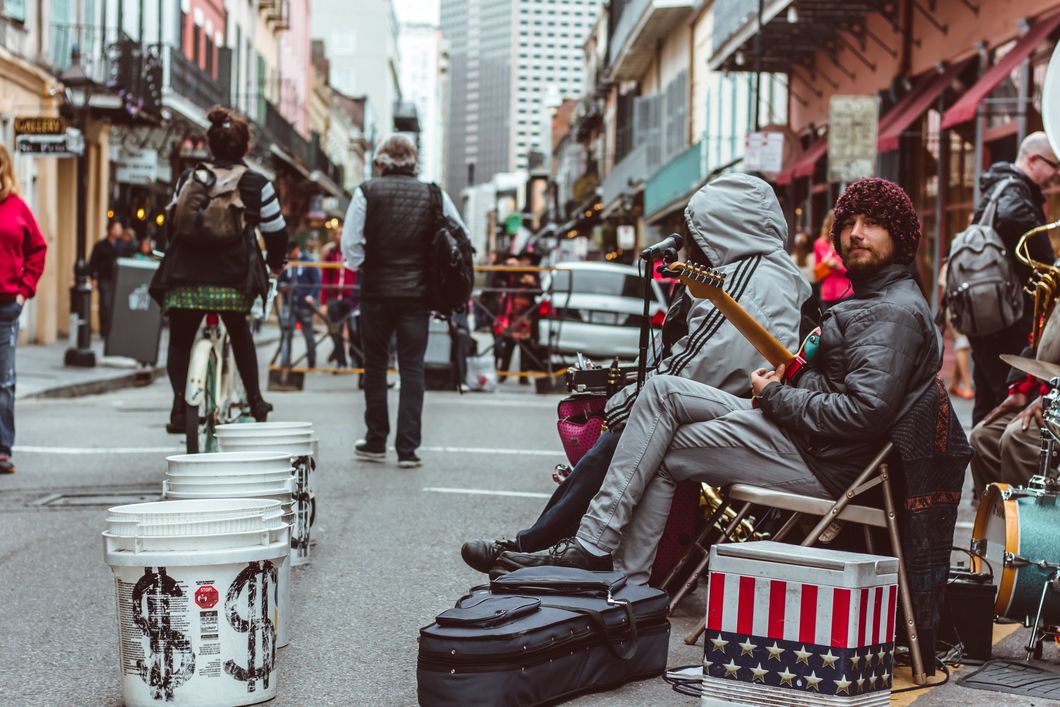Say what you want about the big little city of New Orleans, but you will never be able to say that you didn't have fun there. The birthplace of Jazz, voodoo and Ellen DeGeneres, this city has more culture and flavor than any other place in the country. Known worldwide for Mardi Gras celebrations, the city has more to offer than just the drunken partying that takes place on Bourbon Street and Canal Street.
One thing that makes New Orleans unique though is its Mardi Gras celebration. With parades happening every weekend for a month leading up to Mardi Gras Day. With things like the krewes, Zulu, Endymion, Bacchus, Orpheus and more, out of town people easily get confused when New Orleanians start talking about their Mardi Gras plans. It's more than just a raging party (which is true) — it is the most anticipated season, not a holiday, of the year. New Orleanians plan their whole winter/spring lives around Mardi Gras. The parties, the parades, the balls, and the food are endless during the time between Twelfth Night and Mardi Gras day. Endless oceans of purple, gold, and green can be seen throughout the city. The delicacy of New Orleans, the King Cake, makes an appearance only during this season, and it is every New Orleanian's dream breakfast and dessert.
New Orleans is also the most European city in America. Compare New Orleans to other old cities like Charleston, SC. Both cities are heavily influenced by their European backgrounds. New Orleans has French and Spanish influence on every corner. There is obviously the French Quarter that everyone knows of — but it is actually Spanish architecture, not French. This is all thanks to a fire blazing the Vieux Carre and destroying the original French architecture and the Spanish rebuilding it all during their time in New Orleans.
The food reflects this as well.
Even though the French Quarter is really Spanish does not mean that the city itself isn't. French slang is still spoken throughout the city and state. When in New Orleans and there is an abundance of something we say there is "beaucoup". For instance, we would say "there is beaucoup beads hanging from the streetcar cables." Another term often said in communities like the African American community is "passe blanc". Other words and sayings you'll only hear in the Big Easy are things like "cher" when the old Creole or Cajun men talk to women, "makin' groceries" when we're about to go to the store, "Nainain and Parain" when talking about godparents, "Neutral grounds" when talking about the median in the middle of the street, and "Snowballs" when talking about what everyone else incorrectly calls "shaved ice". If you ever have to navigate "Tchoupitoulas" Street, ask for the pronunciation before you try — it is not how it sounds.
The thing that makes New Orleans the best city is the culture itself. The feel and the vibe of the city is unprecedented. There is no other energy of happiness that compares to the victory party in Champions Square after a Saints victory. There is no greater way to honor the dead than a second line through the streets on the way to the Metairie Cemetery. There is no greater feeling than your neighbors and friends all banning together after a storm to help you go through your house and see what is left when the waters rise. When hard times hit the city there is nothing greater than that. Neighbors helping neighbors, New Orleanians flocking from across the nation to their hometown to help out. New Orleans is the biggest small town, everyone knows everybody, but it also is one big family that parties and celebrates the greatest city there is: together.
As actor John Goodman once said,
"If I could put my finger on it, I'd bottle it and sell it. I came down here originally in 1972... and had never seen anything like it — the climate, the smells. Someone suggested that there's an incomplete part of our chromosomes that gets repaired or found when we hit New Orleans. Some of us just belong here."

















